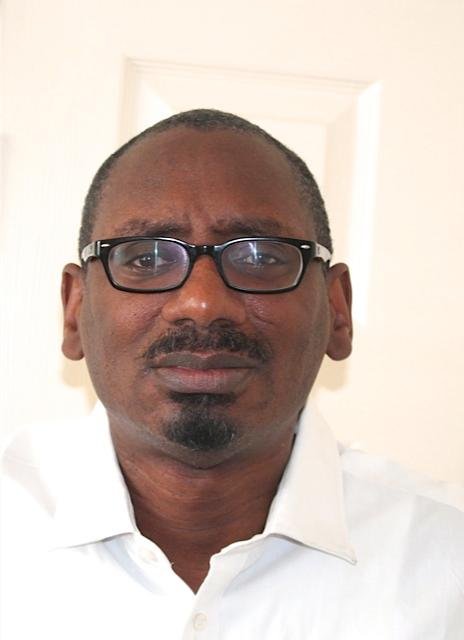Richard Reddie is Director of Justice and Inclusion for Churches Together in Britain and Ireland. He is also a writer, researcher, cultural and religious commentator and broadcaster. In this blog, Richard considers next year's 30th anniversary of Racial Justice Sunday.
Black History Month (BHM), which takes place every October, is an opportunity for everyone to share, celebrate and understand the impact of Black heritage and culture on these shores. For me, there is also a clear racial justice dimension to this annual, monthly observance, which invariably recognises the (ongoing) history of the struggles and successes of Black Britons. One such history is that of Racial Justice Sunday (RJS), which marks its 30th anniversary in British and Irish churches in 2025.

As many Methodists know, it was the Methodist Church that established RJS in 1995 in response to the racist killing of Stephen Lawrence in southeast London in April 1993. The Lawrence family were churchgoers who attended Trinity Methodist Church in Plumstead, Southeast London, and it was this connection that encouraged the Methodist Church to take an interest in this tragedy[i]. Prior to that, its racial justice team had often encouraged the denomination to engage more in addressing racism within Church and society, but the Lawrence case plainly demonstrated that racism was not a benign force that could be tolerated, but something that ‘killed’.
In 1998, the Churches’ Commission for Racial Justice (CCRJ), which was a Churches Together in Britain and Ireland (CTBI) programme, agreed to mainstream the annual day, which is now the second Sunday in February, to ensure that all churches had an opportunity to mark this occasion. (Please see: https://ctbi.org.uk/category/witnessing-together/racial-justice/) As a result, CCRJ also took on the responsibility for the production of the annual resources to mark RJS. (It should also be noted that CCRJ was led at the time by the now retired Methodist minister, Revd David Haslam. David was succeeded in this role by another Methodist minister, Revd Arlington Trotman, so one can see the Methodist Church’s credentials in this work.)
While RJS was a key aspect of CCRJ’s work to effect racial justice, as the aforementioned Revd Arlington Trotman noted in his chapter ‘Racial Justice: an ecumenical journey’ in the book ‘Race for Justice’, CCRJ played a key role in conscientizing and challenging British and Irish churches on taking action on racism and bigotry. As CCRJ were keen to point out, Stephen Lawrence’s murder was one of many racist killings of Black and Asian young people at that time, such as Ricky Reel, Roland Adams, Quddus Ali and others[ii]. What characterised all these cases (at the time) was that no one was convicted of these killings.
Aside from these fatalities, Britain at that time was awash with overt and covert forms of racism, which led to the increased struggle of many Black, Asian and Minority Ethnic (BAME) people to obtain justice and equality in the criminal justice system, employment, education, (mental) health and other public policy-related areas.[iii]
The preponderance of far-right/extremist groups, witnessed high levels of race-related hate crime, which was often unaddressed by the forces of the law.
Moreover, the preponderance of far-right/extremist groups, witnessed high levels of race-related hate crime, which was often unaddressed by the forces of the law.[iv]
The RJS materials and RJS per se are an opportunity to celebrate the diversity that exists in the Church and thank God for the way that Christians from various parts of the world have kept the flame of faith burning on these shores. RJS is also an occasion that encourages Christians to address the race-related hatred and prejudice that sadly still exists in society today. (The shocking events of early August, which saw asylum seekers and certain minority ethnic communities and particular faith groups targeted by hate filled mobs, is a sad indictment of this.)
In my current role as the CTBI Director for Justice and Inclusion I now have the responsibility for assembling the RJS resources. Next year’s material, which marks the 30th anniversary, has the title ‘Coat of Many Colours’, and will celebrate the diversity that exists in the Church (and society) in Britain and Ireland. Moreover, it will focus on the journeys that the churches have taken toward justice, and the challenges that we still face.
Equally, CTBI and the Methodist Church in Britain will host a RJS 30th anniversary church service in early February 2025 (at Westminster Central Hall in London), which will be part celebration, part reflection and part recommitment to Christian unity, community cohesion, justice and peace. Moreover, the hymns, worship songs, poems, prayers and preaching at that service will reflect the RJS theme of a ‘Coat of Many Colours’, and will feature church leaders and Christians of all traditions from across the four nations.
Part of the challenge with special months like BHM in October, and Special Sundays such as RJS (on the second Sunday in February), is that akin to birthdays, they can be marked for a finite time, and then forgotten. However, I would like RJS to become akin to BHM, which was initially the preserve of Britain’s Black communities, but is now mainstream, and considered everyone’s history because it explores facets of British history, and the contributions of Black Britons in these stories and events. I would like RJS to move from being the fixation of the initiated to the mainstream, so that all Christians acknowledge that it is ‘everyone’s business’, and is ‘unfinished business’. Equally, I would like us to use next year’s anniversary to commit ourselves to standing up for racial justice and against any behaviours and attitudes that fail to acknowledge the dignity, value and humanity of all life.
[ii] https://www.bbc.co.uk/news/uk-england-london-28447168
[iii] https://www.equalityhumanrights.com/en/race-report-statistics
[iv] https://www.runnymedetrust.org/uploads/file/Preventing%20Racist%20Violence.pdf